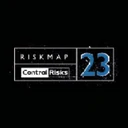
Senior Security Engineer II (Engineering & Tooling), Remote
Job Description
As a Senior Security Engineer you will design, implement, and maintain security systems and tooling across our infrastructure. The ideal candidate will have a strong background in security engineering, an in-depth understanding of security tools, and a proactive approach to mitigating cybersecurity risks. This role involves both hands-on technical work, working closely with cross-functional teams and strategic collaboration to enhance our overall security posture. This candidate will provide technical leadership and coach junior members of the security engineering team.
Primary Duties:
Minimum Qualifications:
Preferred Knowledge, Skills, and/or Abilities:



